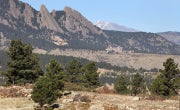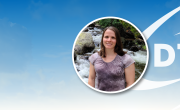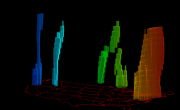2025-12-11 | The METplus team is gathering community input to help shape the future of the METplus Analysis Tools, including both the GUI (METviewer) and the command-line tools (METcalcpy/METplotpy). If you have used the METplus Analysis Tools or have wanted to use the METplus Analysis Tools but have not yet, then this survey is for you! Your feedback will help us understand how these tools are currently used, what challenges users encounter, and what improvements or new capabilities would be most valuable. The survey should take… Read More
Announcement: DTC Visitor Program Special Call
Announcement of Opportunity!

2025-12-01 | We are excited to invite applications for a special Visitor Program opportunity focused on Community Engagement in Advancing the Unified Forecast System (UFS) Hierarchical System Development (HSD). Learn more and apply here! Sponsored by the Earth Prediction Innovation Center (EPIC) Program Office, this call supports 2-3 projects and is aimed at early-career researchers (within 5 years of degree completion) and graduate students interested in contributing to the advancement of the HSD framework for the UFS. Participants… Read More
Software Release: METplus v6.2 Coordinated Release

2025-12-04 | The DTC is pleased to announce the coordinated release of the enhanced Model Evaluation Tools (METplus), a comprehensive, multi-component verification framework! METplus features a suite of Python wrappers and ancillary scripts designed to streamline the setup and execution of MET. Additionally, METplus includes an analysis suite with user-friendly interfaces, METviewer and METexpress, supported by shared packages such as METdataio, METcalcpy, and METplotpy that facilitate loading,… Read More
PROUD Award - Excellence in Action: Tracy Hertneky, Scientist III, NSF NCAR Research Applications Laboratory (RAL)
Performance Recognition for OUtstanding DTC achievements (PROUD) Award for 2025 Q4

2025-11-20 | Tracy Hertneky is a Scientist III in the NSF NCAR Research Applications Laboratory and an invaluable contributor to multiple DTC efforts. She plays a central role in several high-impact projects, including the CCPP software team, the UFS Physics Testing and Evaluation (T&E) project, and the Air Force V&V project. At DTC, she also leads the Retrospective Veracity Testing of the Global Synthetic Weather Radar Product effort. … Read More
PROUD Award - Excellence in Action: Weiwei Li, Project Scientist II, NSF NCAR Research Applications Laboratory (RAL)
Performance Recognition for OUtstanding DTC achievements (PROUD) Award for 2025 Q3

2025-08-19 | Weiwei Li is a Project Scientist at NSF NCAR Research Applications Laboratory. She led the DTC Visitor Program and co-leads DTC’s UFS Physics Testing and Evaluation (T&E) project. Her broad scope of work includes leading the model physics performance assessment, advancing the Common Community Physics Package (CCPP), and fostering collaborations across the weather and climate modeling community. Trained as a tropical meteorologist, Weiwei consistently strives far beyond her original expertise since joining the DTC.… Read More
Software Release: METplus v6.1 Coordinated Release Notes

2025-07-30 | Release Date: July 30, 2025 The DTC is pleased to announce the coordinated release of the enhanced Model Evaluation Tools (METplus), a comprehensive, multi-component verification framework! METplus features a suite of Python wrappers and ancillary scripts designed to streamline the setup and execution of MET. Additionally, METplus includes an analysis suite with user-friendly interfaces, METviewer and METexpress, supported by shared packages such as METdataio, METcalcpy, and METplotpy that facilitate loading, storing,… Read More
PROUD Award - Excellence in Action: Jeff Beck, Research Physical Scientist, NOAA GSL and the DTC
Performance Recognition for OUtstanding DTC achievements (PROUD) Award for 2025 Q2

2025-05-16 | Jeff Beck is a Research Physical Scientist with the NOAA Global Systems Laboratory (GSL), serving as Deputy Director of the Developmental Testbed Center. He leads two DTC projects: Rapid Refresh Forecast System (RRFS) Agile Framework and Model for Prediction Across Scales (MPAS) Stochastic Physics. Outside of DTC, Jeff plays a key leadership role as the chief of the Innovations Assessment Branch of GSL’s Earth Prediction Advancement Division and also serves as acting deputy division chief for GSL’s Assimilation and… Read More
PROUD Award - Excellence in Action: Minna Win-Gildenmeister, Software Engineer III, NSF NCAR Research Applications Laboratory (RAL) and the DTC
Performance Recognition for OUtstanding DTC achievements (PROUD) Award

2025-02-13 | Minna Win-Gildenmeister is a Software Engineer III with the NSF NCAR Research Applications Laboratory and a vital member within the enhanced Model Evaluation Tools (METplus) team. She currently leads four of the seven METplus components: METdataio, METcalcpy, METplotpy, and METviewer. She used to lead only two of these components. However, when the need emerged for a new lead for the other two components, Minna graciously accepted the additional roles, demonstrating her initiative and… Read More
Software Release: METplus v6.0.0 Coordinated Release Notes

2024-12-19 | Release Date: December 19, 2024 The DTC is pleased to announce the coordinated release of the enhanced Model Evaluation Tools (METplus), a comprehensive, multi-component verification framework! METplus features a suite of Python wrappers and ancillary scripts designed to streamline the setup and execution of MET. Additionally, METplus includes an analysis suite with user-friendly interfaces, METviewer and METexpress, supported by shared packages such as METdataio, METcalcpy, and METplotpy that facilitate loading,… Read More
PROUD Award - Excellence in Action: Evelyn Grell, Associate Scientist University of Colorado’s Cooperative Institute for Research in Environmental Sciences (CIRES), NOAA, DTC

2024-11-12 | Evelyn Grell is an Associate Scientist with the University of Colorado’s Cooperative Institute for Research in Environmental Sciences (CIRES) at the NOAA Physical Sciences Laboratory. She plays a key role in the DTC Unified Forecast System Physics Testing and Evaluation project and contributes to other projects outside of the DTC. As the sole DTC staff member from NOAA’s Physical Sciences Laboratory, Evelyn exemplifies an inspiring work ethic and possesses exceptional talent. Her contributions benefit not only the DTC… Read More
Lead Story: In Memoriam - Tara Jensen

Autumn 2024 | The DTC community mourns the passing of Tara Jensen this past September. Tara joined the DTC in December of 2008, eleven months after the initial release of the Model Evaluation Tools (MET), a verification software package developed and supported by the DTC. Over the next six years, Tara contributed to a variety of DTC projects, ranging from collaborations with two other NOAA Testbeds (i.e., the Hydrometeorology and Hazardous Weather Testbeds) to internal projects focused on mesoscale and ensemble model evaluations.… Read More
Director's Corner: Randy Bullock

Autumn 2024 | In May 2024, the DTC lost a major contributor and developer. Randy Bullock was a brilliant mathematician and software developer who was instrumental in the creation of tools used by countless DTC visitors and staff, as well as the worldwide community of METplus users. The DTC would like to note our sadness in losing Randy as a colleague and simultaneously celebrate Randy’s contributions, which were extensive. … Read More
Who's Who: Randy Bullock
Autumn 2024 | Randy was a founding member of the METplus team and the primary developer of the Method for Object-based Diagnostic Evaluation (MODE) tool that has become so incredibly popular within the verification community. Randy retired in 2020 just as COVID was settling in and causing chaos in our world. Once the doors to NCAR opened again, he came back to the office as a casual employee to work through problems when the team needed his support and expertise. We lost Randy and all of the talent he brought to our mission on May 27… Read More
Bridges to Operations: The Role of MODE in Operations

Autumn 2024 | Over the sixteen years the Method for Object-Based Diagnostic Evaluation (MODE) tool has been available within the Model Evaluation Tools (MET), operational forecasting centers have explored its utility for informing the model development process and evaluating operational products in meaningful ways. Through this exploration, MODE has provided insightful information for operational implementation decisions and meaningful data about the performance of operational products. MODE has been applied to many different… Read More
Community Connections: Expansion of MODE applications
Autumn 2024 | The Method for Object-based Diagnostic Evaluation, commonly referred to as MODE, was originally developed to address the skill of forecasts of localized episodic phenomena such as rainfall (Davis et al 2006). The inclusion of this technique in the initial release of the Model Evaluation Tools (MET), the verification package developed and supported by the DTC, in 2008 has led to the exploration of an ever broadening application space for this useful tool. In 2009, the DTC collaborated with the NOAA Hydrometeorology… Read More
Pagination
Copyright © 2026. All rights reserved.